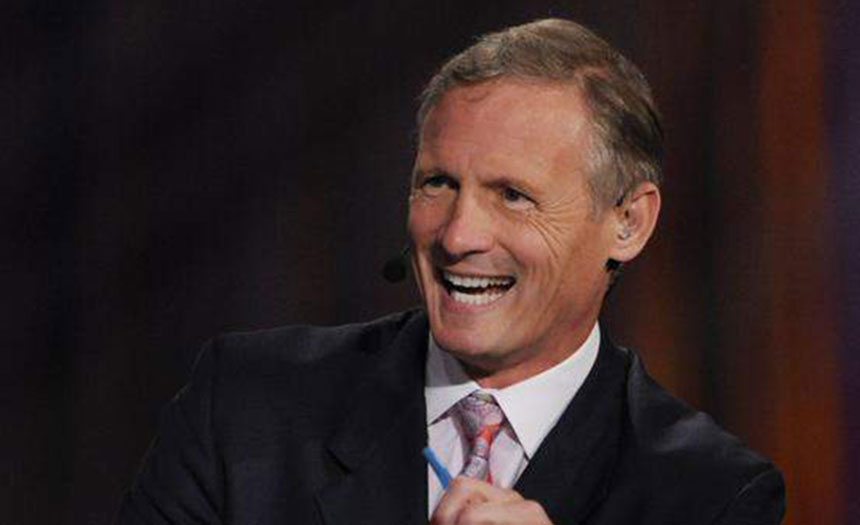FAB 4. WHAT TAMPA BAY CAN LEARN FROM NEW ENGLAND AND ATLANTA
Super Bowl LI is upon us and the Atlanta Falcons will try to become the third NFC South team to win a world championship, joining Tampa Bay (2002) and New Orleans (2010). In order to accomplish that, the Falcons will have to beat the NFL’s best ever destiny in the New England Patriots, who will be in their eighth Super Bowl and seventh in the Bill Belichick era.
It’s easy to forget that the Buccaneers beat the Falcons in Atlanta in Week 1, 31-24, especially after the Falcons returned the favor in Tampa Bay in a 43-28 embarrassment in a nationally televised Thursday Night Football game. So what can the Bucs learn from this year’s Super Bowl participants as Tampa Bay attempts to make the playoffs and a Super Bowl push of its own in 2017?

Patriots head coach Bill Belichick – Photo by: Getty Images
Let’s start with some common denominators. Belichick and Atlanta’s Dan Quinn are defensive-minded head coaches with high-profile offensive coordinators. New England’s Josh McDaniels has been a head coach before in Denver and is destined to become one again when the right opportunity presents itself, perhaps as early as next year.
Atlanta’s Kyle Shanahan, the son of former Oakland, Denver and Washington head coach Mike Shanahan, will be hired as the new San Francisco head coach following the Super Bowl. Shanahan was once a quality control coach under Jon Gruden in Tampa Bay.
The Bucs have the reverse, with an offensive-minded head coach in Dirk Koetter and a high-profile defensive coordinator in Mike Smith. But the takeaway is that a Super Bowl contender needs a truly capable head coach, a very good defense and an explosive offense to make it to the championship game. A team can’t just be great on one side of the ball.
Speaking of explosive offenses, Atlanta and New England were among the best in the league in several important categories. The reason why the Bucs beat the Falcons in Week 1? Tampa Bay put up 31 points, which was well above its season average of 22.2 points per game. The Bucs’ 22.2 points per game was just below the league average of 22.8. The problem for Tampa Bay is that its points per game average was the lowest in the NFC South as Carolina averaged 23.1 points per game.
The Falcons averaged 34.4 points per game, which was the best in the league, while the Patriots averaged 28.4 points per game, which ranked third. NFL MVP candidate Matt Ryan led the Falcons passing attack, which averaged 302.2 yards per game, which was second in the league. Atlanta’s offense generated an average of 420.4 yards per game, which was also second best in the NFL.
Led by four-time Super Bowl champion quarterback Tom Brady, the Patriots offense was also elite in 2016, averaging 388.3 yards per game, including 275.7 yards per game through the air. The NFL is and has been a quarterback-driven league, and New England ranked fourth in passing yards and total yards due to another Pro Bowl season from Brady.

Dirk Koetter and Jameis Winston – Photo by: Cliff Welch/PR
The Bucs have a franchise-type quarterback in Jameis Winston, who has thrown for 4,000 yards in back-to-back seasons in his first two years in the NFL, so that’s a great start. Koetter and Winston will need to produce more yards and points in Tampa Bay next year. In 2016, the Bucs averaged 346.4 yards per game, which ranked 18th. The league average was 350.5 yards per game.
Tampa Bay’s passing game ranked 17th with 245.7 yards per game. That was slightly above the league average, which was 241.9 yards per game.
The other major common denominator between Atlanta and New England is that both rank high in the least amount of turnovers. The first rule of football is don’t beat yourself. The Falcons had the fewest turnovers in the league, while the Patriots had the third-fewest turnovers. The Bucs ranked 24th when it came to turning the ball over.
Here is one last thing about this year’s Super Bowl participants. Just because Quinn and Belichick are defensive-minded doesn’t mean the Bucs made a mistake in hiring an offensive-minded head coach in Koetter. In fact, they were a year ahead of the current trend. Of the six head coaching vacancies this year, four of those jobs went to former offensive coordinators.
Buffalo – Sean McDermott (defense)
Denver – Vance Joseph (defense)
Jacksonville – Doug Marrone (offense)
Los Angeles Rams – Sean McVay (offense)
Los Angeles Chargers – Anthony Lynn (offense)
San Francisco – Kyle Shanahan (offense)
Continued growth in their respective roles by Koetter and Winston, improvements in the passing game and in point production, and a reduction in turnovers will be the key to Tampa Bay’s playoff push in 2017. A significant jump in these categories could wind up propelling the Bucs to Super Bowl LII as a surprise participant, just like Atlanta has been this season.
Scott Reynolds is in his 30th year of covering the Tampa Bay Buccaneers as the vice president, publisher and senior Bucs beat writer for PewterReport.com. Author of the popular SR's Fab 5 column on Fridays, Reynolds oversees web development and forges marketing partnerships for PewterReport.com in addition to his editorial duties. A graduate of Kansas State University in 1995, Reynolds spent six years giving back to the community as the defensive coordinator/defensive line coach for his sons' Pop Warner team, the South Pasco Predators. Reynolds can be reached at: [email protected]


